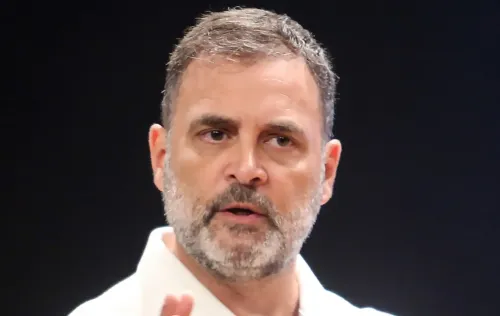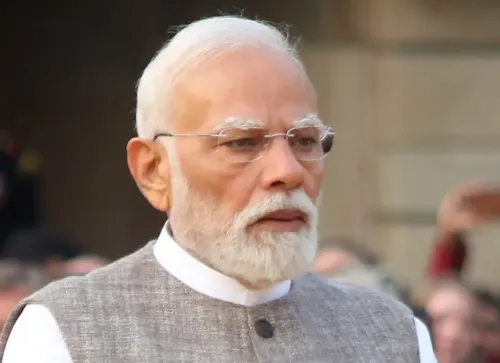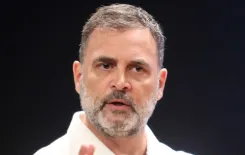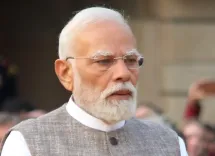Does Sri Lanka Require a Chief Negotiator to Advance the India Trade Agreement?

Synopsis
Key Takeaways
- Sri Lanka must initiate fresh trade negotiations with India.
- Appointment of a Chief Negotiator could bridge trust gaps.
- Economic growth forecasted to slow to 3.3%.
- US tariffs pose significant challenges to Sri Lanka's economy.
- Revisiting the ISFTA is crucial for economic stability.
New Delhi, Oct 2 (NationPress) With the impact of US reciprocal tariffs sending shockwaves through global markets, it is crucial for Sri Lanka to embark on new trade discussions with India. To address any potential trust deficits, the government should contemplate the appointment of a Chief Negotiator, according to a recent analysis.
Sri Lanka finds itself at a pivotal moment, with its economic outlook for 2026 increasingly uncertain due to external pressures. Predictions indicate a slowdown in economic growth to 3.3 percent as the United States implements a 20 percent tariff on essential Sri Lankan exports, as highlighted in an article by Eurasia Review.
In light of this situation, Sri Lanka has approached India to consider increasing its export quota under the Indo-Lanka Free Trade Agreement (ISFTA), established 25 years ago.
In response, India has consistently urged Colombo to revise the existing free trade agreement to tackle upcoming challenges.
The Economic and Technology Cooperation Agreement (ETCA) has emerged as a significant topic of conversation. Nonetheless, advancements in enhancing the ISFTA have been stagnant, despite several rounds of discussions across different administrations aimed at boosting trade and investment between India and Sri Lanka,” states the report from A. Jathindra, an independent political analyst based in Sri Lanka.
India continues to show interest in progressing.
Santhos Jha, the High Commissioner of India to Sri Lanka, remarked that India is not exerting pressure regarding ETCA but is “waiting for Sri Lanka to awaken and recognize its potential benefits.”
Deputy Minister of Foreign Affairs, Arun Hemachandra, expressed, “We are open to the agreement if we can secure favorable terms. Otherwise, we won't sign it. Our commitment to protecting the nation's economic sovereignty is paramount.”
“In scenarios where one nation is stronger and the other is weaker, it is essential to recognize the tendency for the stronger nation to dominate. Thus, we must tread carefully,” he noted.
The report concludes that the challenge lies in how Colombo can effectively navigate its relationships with more dominant nations to advance its own interests.









